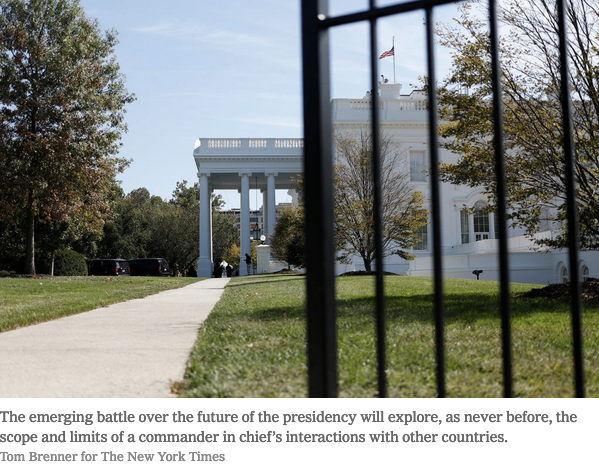Not guilty. Not guilty.
In the United States Senate, like in many spheres of life, fear does the business.
Think back to the fall of 2002, just a few weeks before that year’s crucial midterm elections, when the Authorization for Use of Military Force Against Iraq was up for a vote. A year after the 9/11 attacks, hundreds of members of the House and the Senate were about to face the voters of a country still traumatized by terrorism.
Senator Patty Murray, a thoughtful Democrat from Washington State, still remembers “the fear that dominated the Senate leading up to the Iraq war.”
“You could feel it then,” she told me, “and you can feel that fear now” — chiefly among Senate Republicans.
For those of us who, from the start, questioned the wisdom of the Iraq war, our sense of isolation surely wasn’t much different from the loneliness felt in the 1950s by Senator Herbert Lehman of New York, who confronted Joe McCarthy’s demagogy only to be abandoned by so many of his colleagues. Nor was it so different from what Senator George McGovern must have felt when he announced his early opposition to the Vietnam War and was then labeled a traitor by many inside and outside of Congress.




